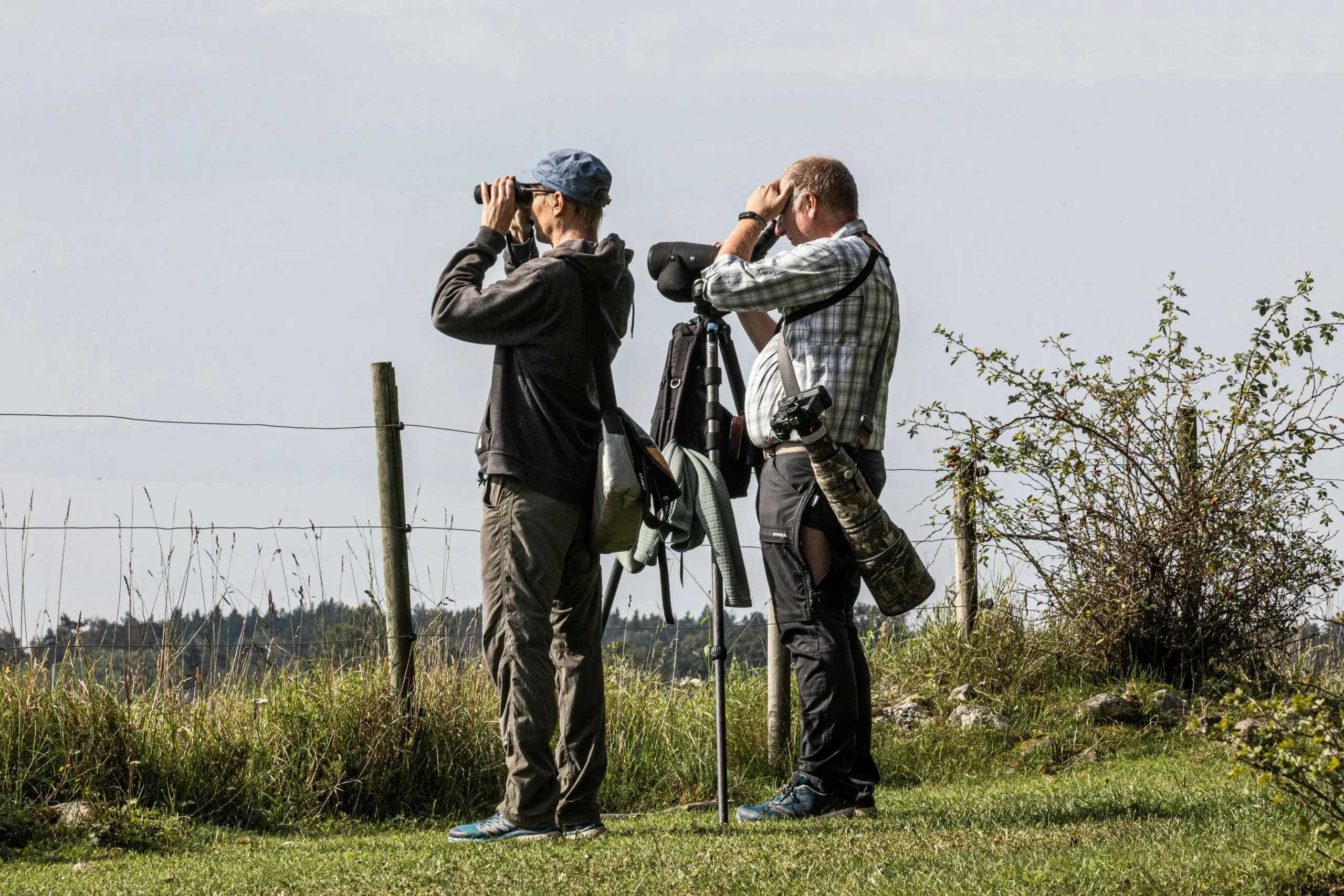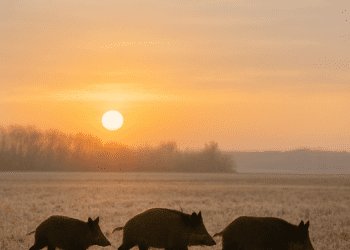
Introduction to Wildlife Watching
Wildlife watching has emerged as a captivating pursuit, drawing individuals from diverse backgrounds who seek to engage with nature in a responsible and rewarding manner. The benefits of wildlife watching include observing animals in their natural habitats, providing a unique opportunity to appreciate the beauty and complexity of the natural world. Unlike traditional hunting and fishing, wildlife watching emphasizes conservation and sustainability, making it an appealing alternative for many outdoor enthusiasts.
The increasing popularity of wildlife watching can be attributed to a growing awareness of the need to protect fragile ecosystems and the species that inhabit them. As people become more environmentally conscious, many are finding enjoyment in activities that promote the preservation of wildlife rather than its exploitation. This shift has significantly contributed to the rise of Eco-tourism, where travellers prioritize experiences that foster connections with nature while supporting local communities and conservation efforts.
Additionally, the emotional and intellectual benefits of wildlife watching are manifold. Observing animals in their natural settings can instill a profound sense of peace and joy, while also stimulating curiosity and a desire to learn more about the intricate relationships within ecosystems. Each encounter with wildlife presents a chance to develop a deeper appreciation for biodiversity and the responsibilities that come with it. Whether it is witnessing the majesty of a soaring eagle or the playful antics of otters, these encounters often leave lasting impressions that resonate with observers long after the experience.
As society continues to evolve, the allure of wildlife watching serves as a reminder of the importance of reconnecting with the natural world. This growing trend offers not only enjoyment but also a pathway to fostering a collective commitment to preserving the wonders of our planet for future generations.
Benefits
Wildlife watching offers a myriad of benefits that extend beyond mere enjoyment, significantly contributing to individual well-being and environmental awareness. Engaging in this activity can lead to considerable mental health advantages. Numerous studies indicate that spending time in nature, especially while observing wildlife, is associated with reduced stress levels and improved mood. The tranquility of natural settings can facilitate relaxation, allowing individuals to unwind from the pressures of daily life. The act of focusing on the movements and behaviour of animals encourages a state of mindfulness, which can foster an enhanced sense of presence and appreciation for the surrounding environment.
Moreover, wildlife watching serves as an educational platform, providing participants with insights into ecosystems and the intricate relationships within them. Observers often develop a greater understanding of various species, their habitats, and the necessity for conservation measures. This knowledge promotes environmental stewardship, as individuals become more aware of the challenges faced by wildlife and their habitats. By witnessing the beauty of nature firsthand, people are often inspired to advocate for preservation efforts, thus fostering a culture of conservation.
Additionally, the social aspects of wildlife watching cannot be overlooked. This activity encourages communal participation and can strengthen bonds among family and friends. Shared experiences in nature, whether through organized tours or casual outings, enhance connections and create lasting memories. The passion for wildlife can also foster discussions about ecological issues, enlightening participants and nurturing a collective responsibility towards wildlife conservation.
In summary, wildlife watching is not only a fulfilling pastime that enriches personal well-being but also cultivates a deeper understanding and appreciation for the environment. By integrating mental health benefits and education, wildlife watching emerges as a holistic approach to enhancing individual lives and promoting a healthier planet.
Best Practices for Wildlife Watching
Wildlife watching is a rewarding activity that allows individuals to connect with nature while observing animals in their natural habitats. To ensure that this experience is both enjoyable and responsible, it is essential to adhere to best practices that promote the well-being of wildlife. One of the foundational principles of effective wildlife observation is maintaining a respectful distance from animals. Approaching too closely can stress wildlife, disrupt their natural behaviours, and may even pose risks to both the observer and the animal. A general guideline is to stay at least 100 yards away from large mammals and at least 25 yards from smaller creatures, unless specific regulations dictate otherwise.
Understanding animal behaviour is equally crucial. Observers should familiarize themselves with the species they intend to watch, including their feeding habits, mating rituals, and seasonal movements. This knowledge enhances the experience, allowing for a deeper appreciation of wildlife activities while avoiding unintended disturbances. Furthermore, using the right equipment can greatly enhance the wildlife watching experience. Binoculars are an invaluable asset, allowing for clear and close viewing without encroaching on the animals’ space. A camera with a telephoto lens is also beneficial, enabling photographers to capture stunning images while adhering to the ethos of maintaining distance.
Ethical wildlife watching extends beyond personal enjoyment; it encompasses a responsibility to ensure the preservation of wildlife habitats. Supporting conservation efforts is vital for sustaining animal populations and their environments. Engaging with local wildlife organizations, participating in conservation programs, or donating to wildlife protection initiatives can amplify the positive impact of wildlife watchers. By promoting ethical standards and respecting animal welfare, enthusiasts can contribute to a future where wildlife watching remains a cherished pastime for generations to come.
Top Destinations for Watching
Wildlife watching offers a unique opportunity to observe animals in their natural habitats, making it a rewarding experience for nature enthusiasts. Various destinations around the globe provide exceptional opportunities for wildlife encounters, each possessing its unique ecosystems and species. Among these, the following sites are particularly noteworthy for their diverse wildlife and visitor experiences.
One of the premier locations for wildlife watching is Yellowstone National Park in the United States. Renowned for its geothermal features, the park is also home to a rich array of wildlife, including bison, elk, and wolves. The ideal time to visit Yellowstone for wildlife viewing is during the spring and fall months when animals are most active. Guided tours are available, enhancing the experience by providing insights into the animals’ behaviours and preferred habitats.
On the African continent, the Serengeti National Park in Tanzania stands out as a top destination for witnessing the Great Migration, a spectacular event involving millions of wildebeest and zebras. The best time to visit the Serengeti for wildlife watching is from June to October when animals congregate around water sources, making them easier to spot. Beyond wildlife safaris, visitors can also engage in hot air balloon rides for a bird’s eye view of the majestic landscape and its inhabitants.
Argentina’s Valdes Peninsula
Argentina’s Valdes Peninsula offers another enchanting setting for wildlife watching, especially for marine wildlife. Visitors can observe southern right whales, seals, and penguins, particularly during the mating season from June to December. The region’s unique coastal environment provides distinct opportunities to witness both terrestrial and marine species up close, further enriching your wildlife watching experience.
Lastly, the Galapagos Islands in Ecuador provide an unmatched opportunity to observe unique species not found anywhere else. This UNESCO World Heritage site is home to fascinating animals such as giant tortoises and blue-footed boobies. The best time to visit for wildlife enthusiasts is from June to September when sea life is at its peak, providing ample options for snorkelling and diving alongside charming marine creatures.
These destinations are just a few of the remarkable places around the world where wildlife watching can offer unforgettable experiences. Each location presents unique animals, ideal visiting times, and additional activities for travellers, making wildlife watching a truly enriching pursuit.






















